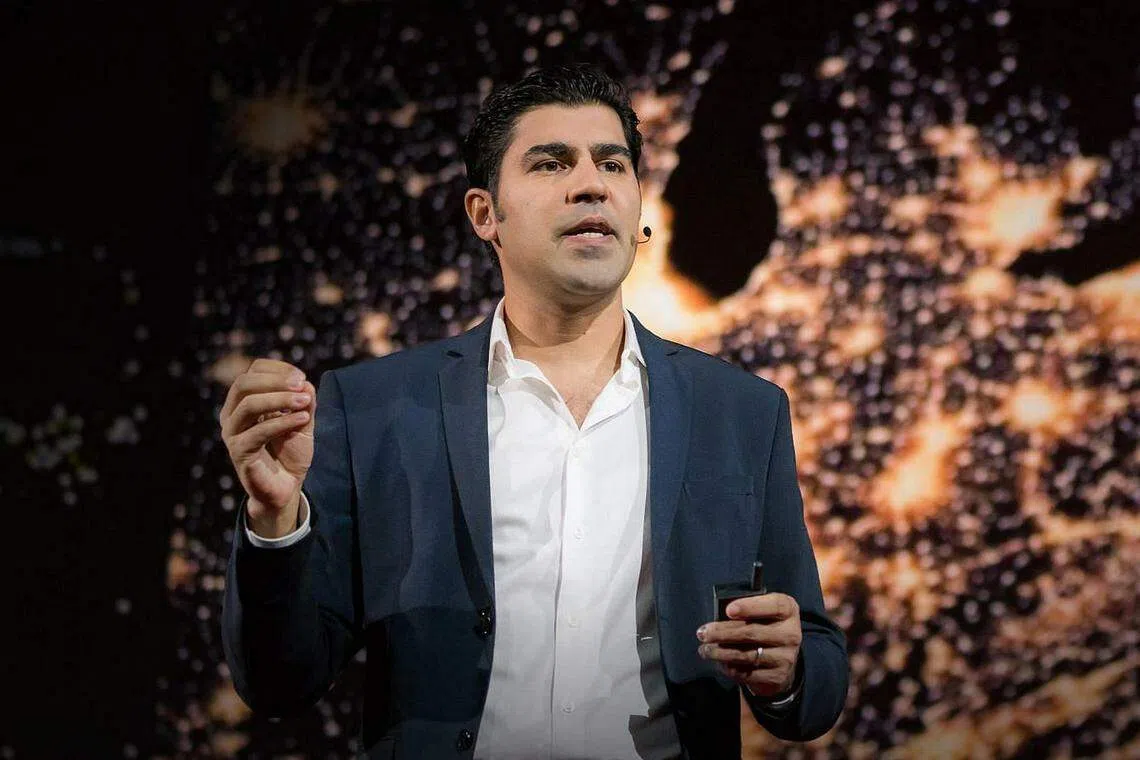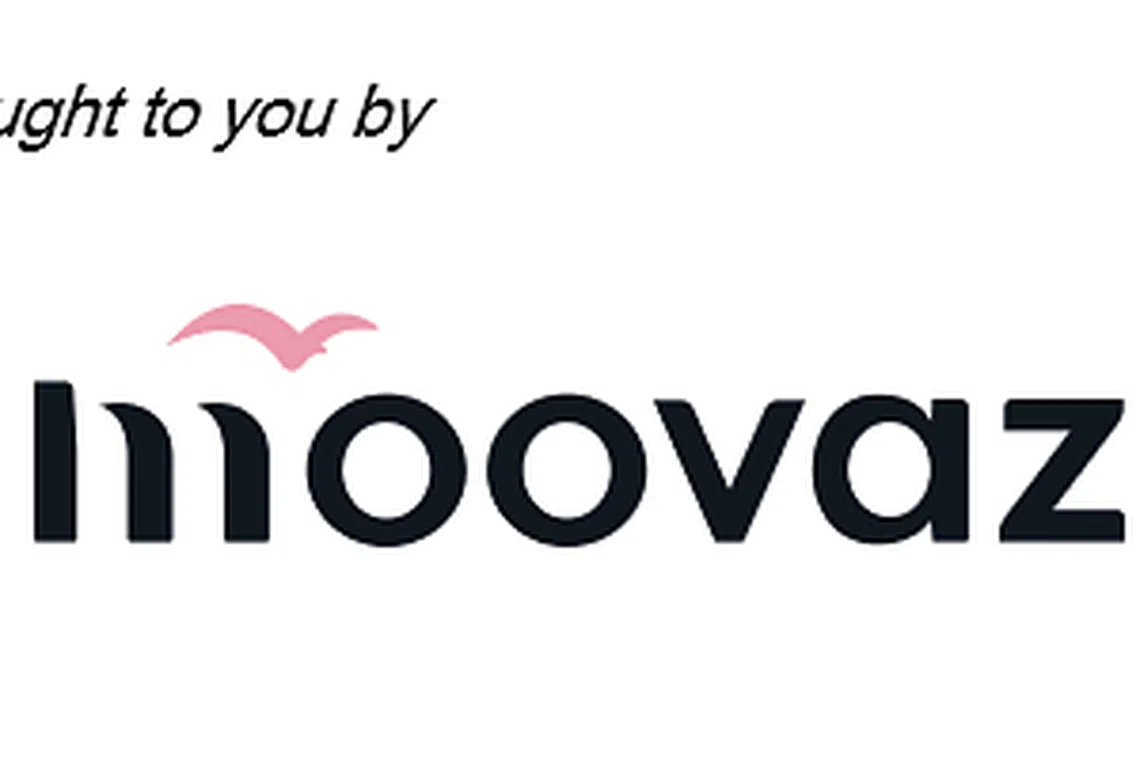Relocation technology: How it can make moving overseas simpler and cheaper
Prominent thinker and writer Parag Khanna shares his insights on how the adoption of technology can reshape this sector, making the move less stressful for tens of millions worldwide
Technology has been a positive disruptor in the past decade, enabling millions around the globe to bank more easily, wholesalers to reach customers directly online and even the visually-impaired to self-drive.
Yet, for one of the most stressful life events - relocation - technology has failed to bring about much change. The relocation landscape remains highly fragmented and plagued with inefficiencies even as the movement of people from one place in the world to another has been intensifying since the 2000s.
A relocation journey typically involves many moving parts, each an unique stressor on its own. From handling immigration paperwork such as visas, employment permits and immunisation requirements to signing up new phone contracts, utilities and bank accounts, no single company can take on every stage of a relocation.
This is where technology can play a unifying role, bringing the different parts - and players - onto a centralised platform, streamlining processes, weeding out redundancies and making the relocation process less stressful for users - at every step of their journey.
Dr Parag Khanna, one of the world's leading global strategists, has teamed up with Singapore-based international relocation company Moovaz to reimagine the industry in an era of rapid digitalisation.

The author of Move: The Forces Uprooting Us, one of the Financial Times's Best Books of 2021, says Relocation Tech, or ReloTech for short, can lower costs and create more simplicity for people who are moving across borders.
Here are Dr Khanna's five key insights:
1. Technology can help make international relocation easier
Unlike FinTech and streaming platforms that fulfil orders and transactions for the world's customers at a touch of the screen, the relocation industry is far too nuanced for global companies to take on every aspect of its value chain, says Dr Khanna.
"There's cultural sensitivity, shifting policies and a lot of regulatory uncertainty that large companies don't necessarily want to navigate," says the best-selling author.
He believes it will take a while for tech to disrupt the relocation industry, citing the example of global logistics firm DHL that took decades to innovate.
"DHL took a lot of time to get to where it is and they invested a lot in using their digital platform and their cooperation with different customs and border agencies to bring their technology into those systems so their packages can get across borders faster than the competition," says Dr Khanna.
Currently, ReloTech is about applying tech that's already in use and making them easily accessible from a single platform.
"It's about applying these technologies that we have available to cross over, from FinTech to data, storage, warehousing, data security, human resources, customs and borders and migratory policies, all into one platform," Dr Khanna says.
2. ReloTech enhances transparency and security
Bringing all the non-tech and low-tech parts of the relocation industry, such as moving and storage companies, onto one digital platform will give customers a clearer view of their options.
New technologies such as blockchain could also be leveraged. For example, documents such as visas, customs and immigration papers could be put on the blockchain and verified for enhanced security.
Financial products and transactions also fit well with ReloTech, including cryptocurrency payments that continue to push into the mainstream as evidenced by the example of Visa that is using blockchain to facilitate crypto transactions via digital wallets.
3. ReloTech responds to changing policies
ReloTech can more efficiently respond to new policies aimed at plugging labour shortages and demographic imbalances.
"From an overarching moral standpoint, I support the free movement of people at a practical level and at a political and diplomatic level, and that involves a lot of reforms around immigration policy, visa tiers and regulations," says Dr Khanna.
"We're doing that here in Singapore and modifying it all the time. Then at a logistical, practical level it's about enabling that," he adds.
A prime example is Singapore's plan for a work pass that will be launched in 2023 to allow high-earners and high-achievers to live in the country without having to first secure a job here.
Digital platforms will meet the demands of this lucrative socio-economic demographic by offering ready options of verified and trusted service providers for every stage of their relocation.
4. Asia is ripe for ReloTech
Asia is home to almost five billion residents and the continent has the biggest movements of people, including professionals and skilled labour.
People are moving intra-Asia, out of Asia and, to a lesser extent, into Asia from outside the region. All these groups would use ReloTech, according to Dr Khanna.
"These are the trends in the data that I captured in my book, but more importantly, it's the data, forecasts and trends that Moovaz has captured very up-to-the minute in their most recent report," he adds, referring to the company's Human Mobility Report 2022.
The biggest Asian outbound market is India heading for top destinations the six Gulf Arab countries, USA, Australia and Canada.
"India is by far the largest origin country of outbound permanent expatriation in the world and I believe it's going to remain that way for a very long time," Dr Khanna says.
The ten-member Association of Southeast Asian Nations (Asean) will also continue to contribute to the growth of regional mobility.
"Asean has facilitated free labour mobility for certain professional categories and that's expanding evermore so you will have what you could call an organic optimisation in terms of the redistribution of people within Asean," says the global strategist.
5. ReloTech opportunities for companies
Moovaz is creating new forms of collaboration through a market network that opens up opportunities for companies to serve the relocation needs of corporate, enterprise and retail clients.
These multiple service providers work interdependently to serve relocators from origin to destination.
"It's an ecosystem of partnerships to fulfil each step along the journey and continuum," explains Dr Khanna.
What ReloTech needs to accelerate the growth of that ecosystem is for more service providers and stakeholders to come on board, especially to cover a wider geographical footprint.
"I hope that companies and their technologies will speak to each other and they'll use similar digital and technological rails to facilitate that," Dr Khanna says.
"Right now, it's a marketplace that's in a kind of Cambrian moment of explosion and Moovaz is one of those companies in that space," he adds.
Read more about Moovaz Human Mobility Report 2022 and thought leader Dr Parag Khanna here.

In partnership with Paleo
Decoding Asia newsletter: your guide to navigating Asia in a new global order. Sign up here to get Decoding Asia newsletter. Delivered to your inbox. Free.
Copyright SPH Media. All rights reserved.
